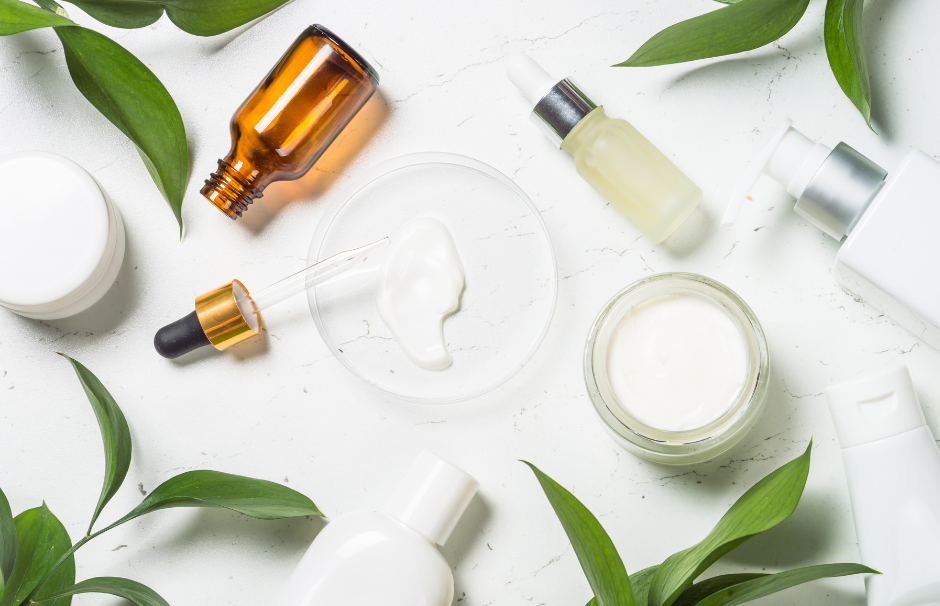It’s hard to imagine the cosmetics industry without the term clean beauty. More and more brands are advertising “clean” ingredients, “pure” care and promising products without harmful chemicals. But what does Clean Beauty actually mean? Is it just a marketing trend, or a genuine shift towards greater skin compatibility, transparency, and sustainability?
In this article, we explain the definition of Clean Beauty, clarify the difference between clean beauty and natural cosmetics, highlight current market figures, and show what to look out for when shopping if you want to do something good for your skin and the environment.
🔍 What Does Clean Beauty Mean?
Clean Beauty refers to cosmetic products that do not contain questionable or potentially harmful ingredients. These include substances such as parabens, sulfates, mineral oils, PEGs, synthetic fragrances, or colorants ingredients that can irritate the skin, cause dryness, or have long-term negative effects.
Clean Beauty focuses on transparent ingredient lists, skin-friendly formulations, and whenever possible—sustainable production methods and packaging.
Important: Clean Beauty is not an officially protected term or certification. Any brand can label itself as “clean,” which makes it all the more important to take a critical look yourself.
📈 Facts & Figures: How Did the Clean Beauty Trend Emerge?
The Clean Beauty trend originated in the United States. Early momentum came from platforms like Goop (founded in 2008) and Beautycounter (2013), which focused on mindful ingredients and transparent communication. The movement gained traction as consumers began to scrutinize product labels more critically. Social media, documentaries, and apps like CodeCheck or Yuka further fueled the trend.
In recent years, the trend has also gained strong popularity in Europe, where it meets a rapidly growing market.
🔹 According to Grand View Research, the global market value for Clean Beauty products was around 8.20 billion US dollars in 2023.
🔹 By 2030, the market is projected to grow to over 21.30 billion US dollars (CAGR: approximately 14.6% per year).
🔹 In Germany, a GfK study shows that over 60% of consumers already pay attention to “fewer ingredients” when purchasing cosmetics.
🔹 According to Mintel, over 70% of Millennials say they are willing to spend more money on products with “clean” formulations.
🌿 Clean Beauty vs. Natural Cosmetics: What’s the Difference?
|
Criteria |
Clean Beauty |
Natural cosmetics |
|
Ingredients |
Safe, including synthetic ones |
Of natural origin, mostly plant-based |
|
Certification |
No standardized certification |
Often COSMOS or NATRUE |
|
Focus |
Skin compatibility & transparency |
Natural origin & avoidance of chemicals |
|
Preservation |
Allowed, as long as classified as safe |
Avoidance of harsh preservatives |
Clean Beauty is therefore not a synonym for natural cosmetics, but rather a science-based approach to well-tolerated, modern skincare.
💬 Why Do So Many People Choose Clean Beauty Products?
The skin is our largest organ, and more and more people want to know exactly what they’re putting on it. Especially for sensitive or irritation-prone skin, gentle cosmetics are becoming increasingly important. Clean Beauty products offer a trustworthy solution by avoiding problematic ingredients, promoting clear communication, and catering to a variety of skin needs.
Awareness is also growing that true skincare should not only be effective but also ethically and transparently produced. Choosing Clean Beauty means opting not only for gentle skincare but also for more conscious consumption.
🌍 Is Clean Beauty Also Sustainable?
Clean Beauty does not automatically equal sustainability, but the two areas often overlap. Many Clean Beauty brands focus on:
- recyclable packaging
- cruelty-free development
- climate-friendly production
- biodegradable ingredients
Clean Beauty also reflects the spirit of a more conscious, younger generation.
✅ Conclusion: Clean Beauty Is More Than Just a Trend
Clean Beauty doesn’t automatically mean “better,” but it often means more conscious, transparent, and skin-friendly. Those who choose Clean Beauty pay attention not only to what a product contains, but also to what it leaves out.
It’s not about replacing natural cosmetics, but about a modern, responsible approach to skincare one that is individualized, well-tolerated, and transparent.
If you want to focus on clear ingredients, trustworthy brands, and gentle formulations in your skincare routine, then Clean Beauty is a smart choice for your skin, your well-being, and the environment.
The world of cosmetics
Would you like to receive news about cosmetics by e-mail once a quarter?
